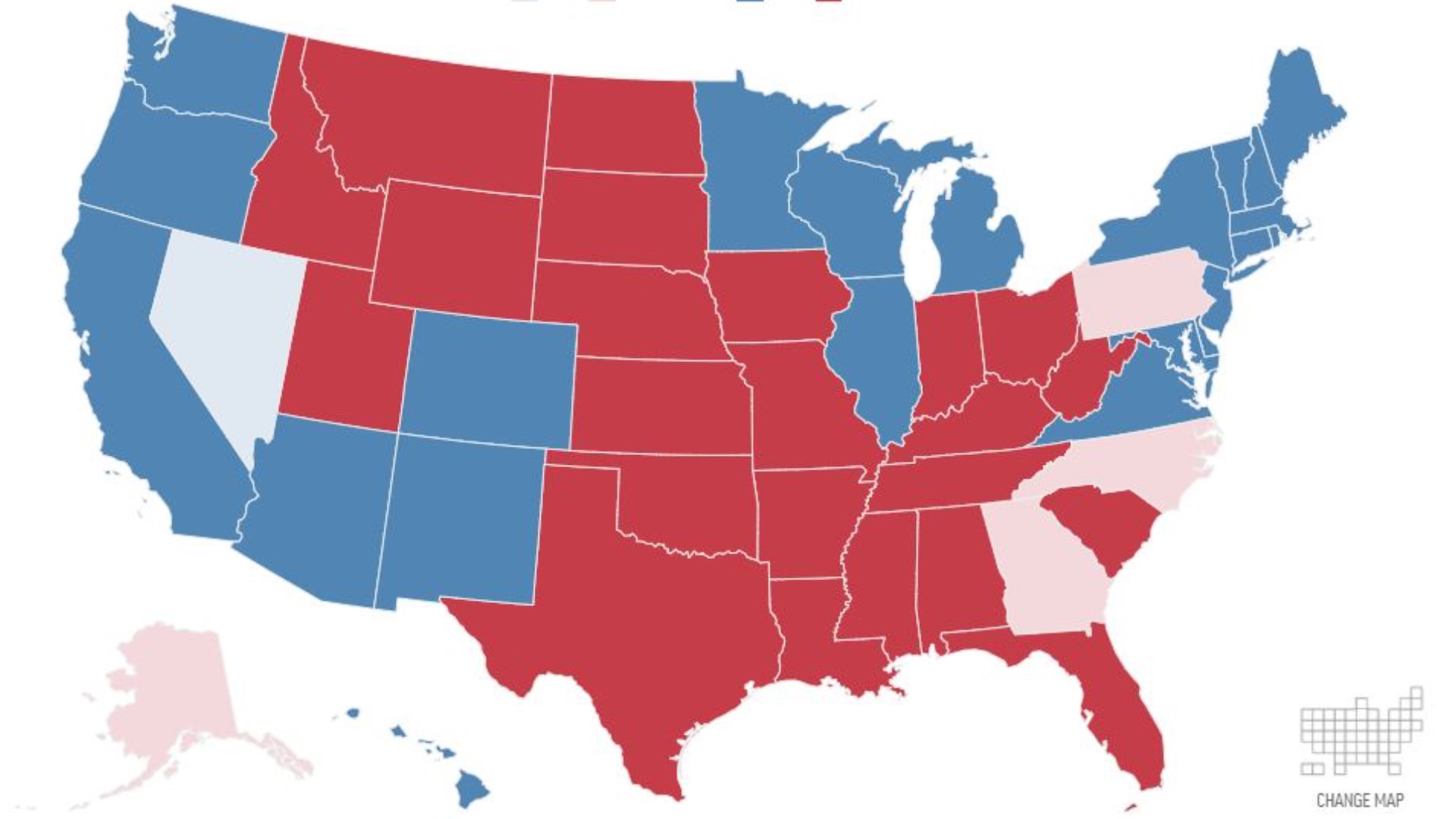TAMPA, Fla. — As states count every ballot cast and we get insight into how many Americans voted for each presidential candidate, the focus is on a different number-- 270.
That is the number of Electoral College votes needed to secure the White House. The Electoral College, not the popular vote, determines who takes the presidency.
So, what is the Electoral College?
It's a group of presidential electors, of which, each state and the District of Columbia get at least three. Densely populated states like Florida take even more. Florida has 29 electors and like most states is “winner-take-all.”
How are they selected?
“It’s up to the parties to choose who they are. The governor appoints whoever the party says are their 29. And whichever party wins the state, and it happened to be republicans in Florida, this election, the 29 electors go out there,” said Reggie Mithcell, a professor of law at Florida Agricultural and Mechanical University.
Months ago Governor Ron DeSantis submitted his certified lists of 29 Republican presidential electors and 29 Democratic presidential electors as selected by both parties to the Department of State.
When do they vote?
Presidential electors in Florida will cast their votes after the state certifies all results on November 17 and the deadline to contest an election, November 27, has passed.
The 29 electors will travel to Tallahassee where they will cast their votes for the party’s presidential nominee.
Can presidential electors deviate from party votes?
They can, and it does happen. In 2016, seven electors did not vote for their party’s candidate. Those electors are referred to as “faithless electors.”
Many states have laws requiring them to vote for the party’s nominee, however, not all are penalized.
In Florida, the vote cast stays and there is no penalty. In other states, the vote is canceled and the elector is replaced, while some states will do that and fine the elector. In three states, the vote stays but the elector faces criminal charges.
The Supreme Court upheld that states can require presidential electors to keep their promise.
“They take an oath to do the right thing, but they're not required, which is one of the greatest drawbacks of the electoral system,” Mitchell said.
He says there’s also a humility factor where electors who deviate from their party often face ostracism from their peers. And with the polarization of both sides and the unofficial results being close in this election it is unlikely you will see electors do that, Mitchell added.
“If one elector flips, you know, one of the most important positions the United States has can be altered by that. Theoretically, and that's what we're talking about. It could happen, but it's not likely to happen. I think this race is too close,” he said.
What other people are reading right now:
- 2020 Election Results | Get live results from 10 Tampa Bay
- Reports: Florida man shoots, kills pregnant wife after mistaking her for intruder
- In 2016, Trump won Wisconsin recount. Now he seeks another.
- Biden nears 270 as battleground states continue counting ballots
- Police: Man makes threats on YouTube to kill Trump supporters, Florida politicians
►Breaking news and weather alerts: Get the free 10 Tampa Bay app
►Stay In the Know! Sign up now for the Brightside Blend Newsletter

